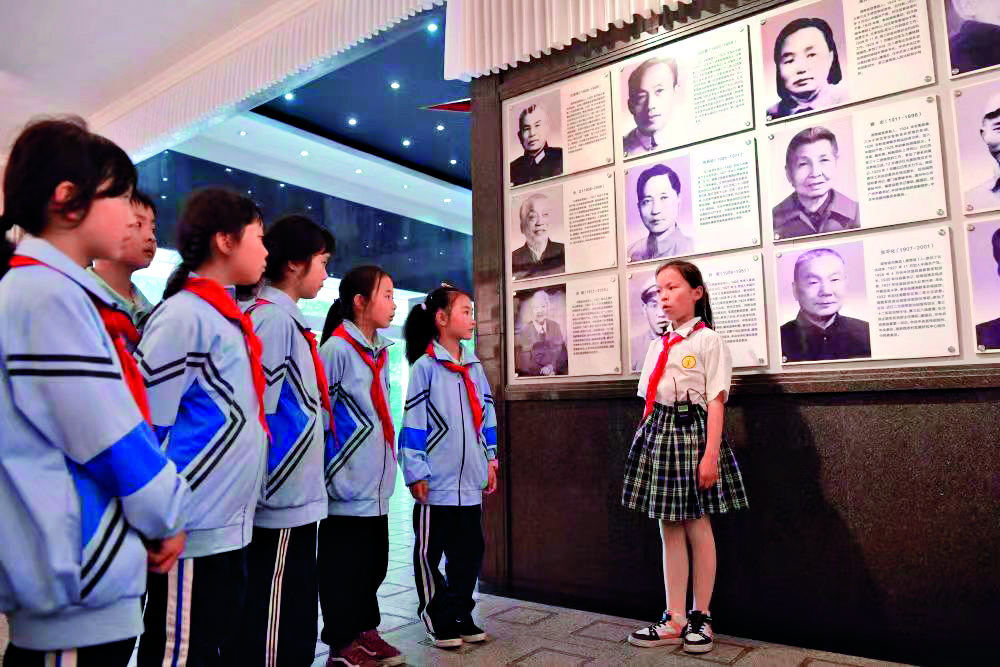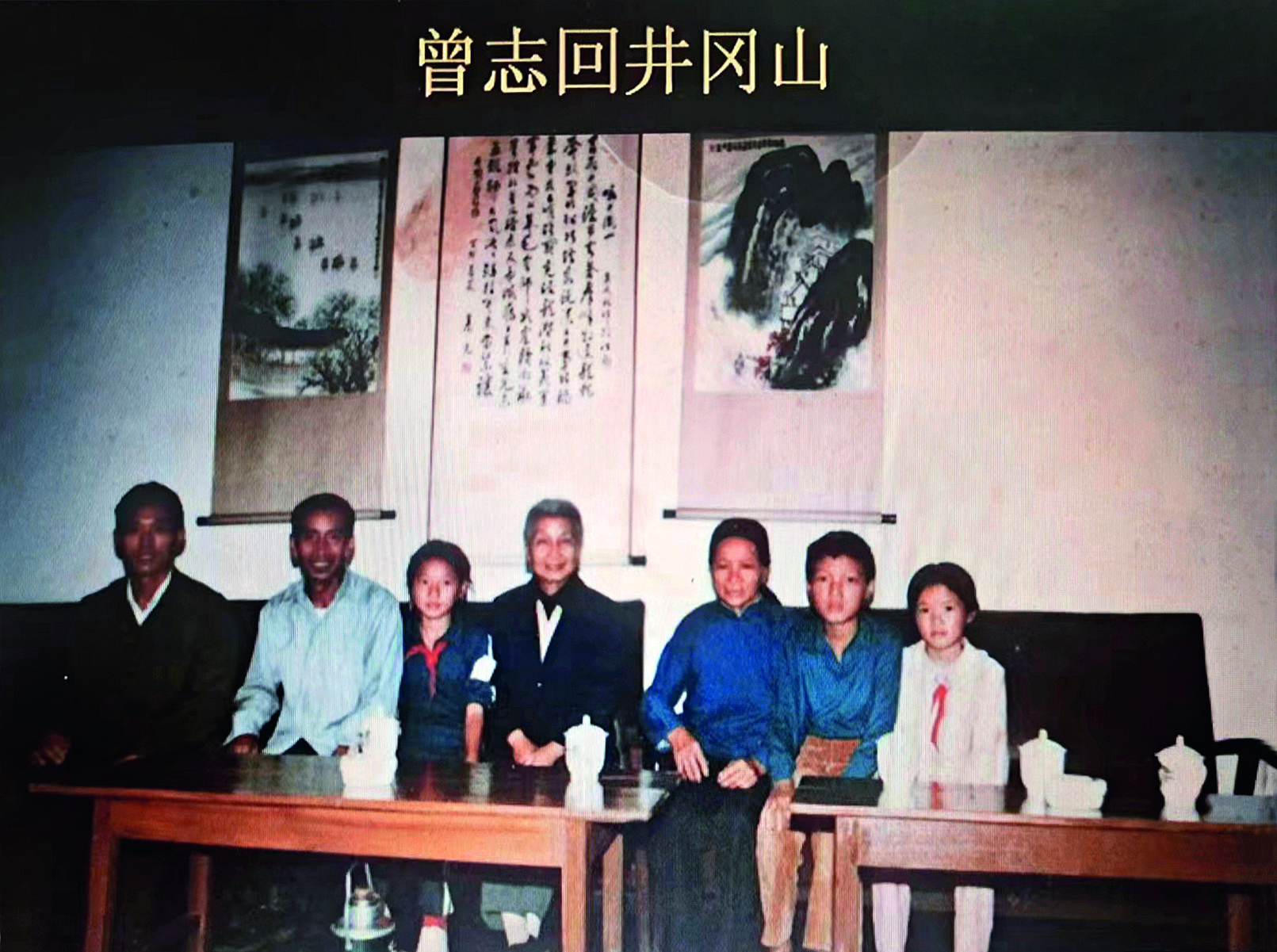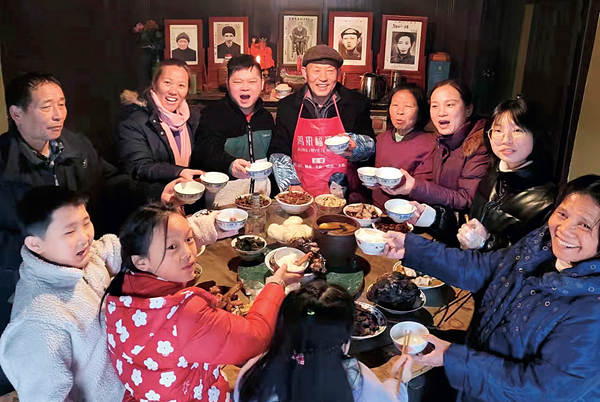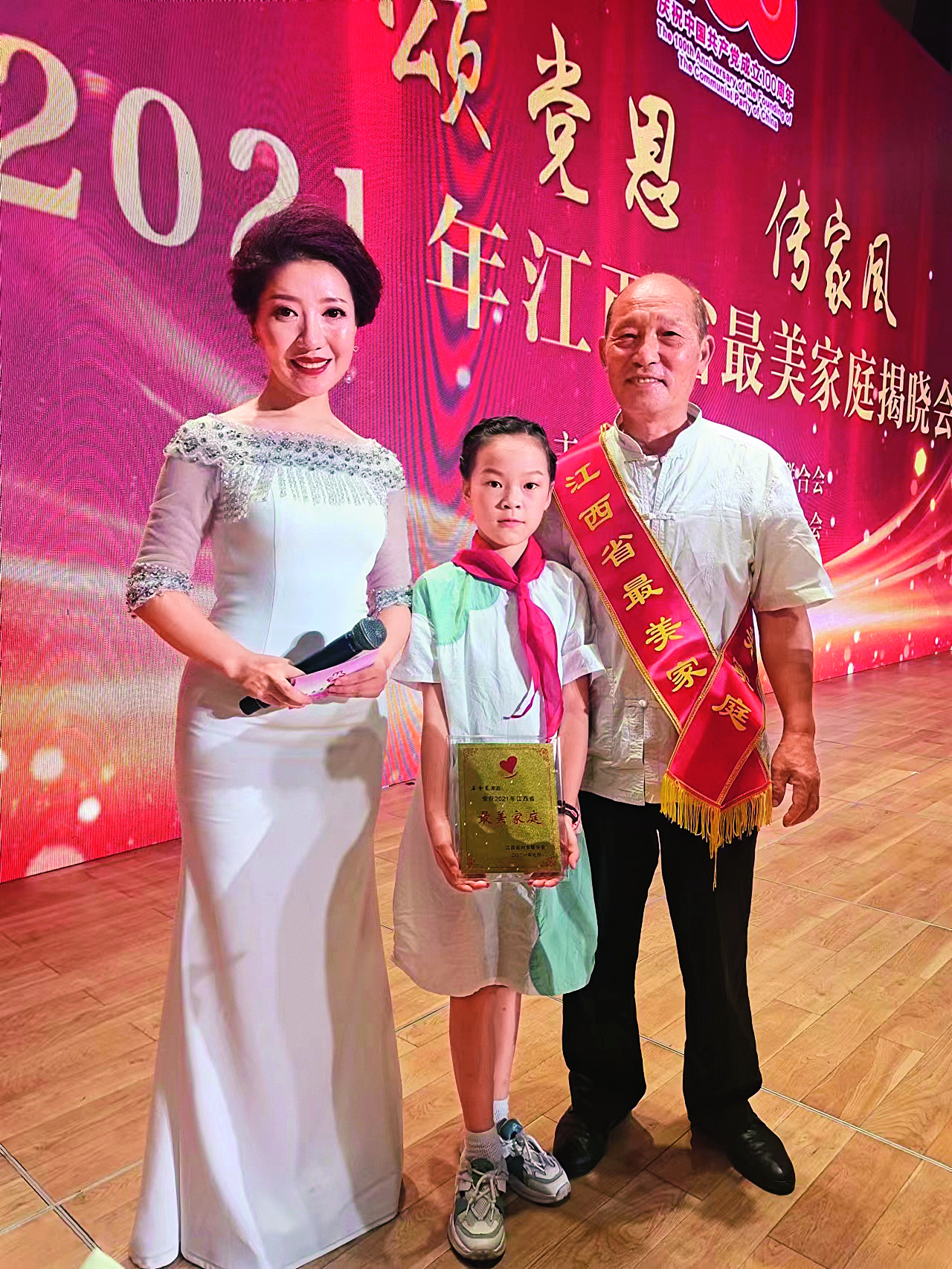Family of 'Red History' Takes Root in Jinggangshan
Jiangxi Province, in East China, has a "red history" full of touching stories about the revolutionary pioneers and martyrs. Their offspring have inherited moral virtues, which have been passed, from generation to generation, in their families. Zeng Zhi (1911-1998), who was an outstanding member of the Communist Party of China (CPC), once worked in Jinggangshan, in Jiangxi. Zeng commonly told her descendants, "I am a Red Army soldier, and a Party member. You must be useful to our Party, and our nation."

A gravestone is situated in a corner of the former site of the Xiaojing Red Army Hospital, in Jinggangshan. That stone marks the resting place of Zeng, who joined the CPC in 1926. In April 1928, Zeng became secretary of the general Party branch of the home-front general hospital of the Fourth Front Army of the Red Army. After the People's Republic of China (PRC) was founded, in 1949, Zeng served, in succession, as Secretary of the CPC Guangzhou Municipal Committee (in South China's Guangdong Province) and Vice-Minister of the Organization Department of the CPC Central Committee.
Farmer, for Life
Zeng gave birth to her first child in Jinggangshan in November 1928. She could not take care of the child during the war. She left her baby boy with a resident, Shi Libao. Shi Libao gave the boy a name, Shi Laifa. When Shi Laifa was 7, Shi Libao and his wife both sacrificed during the revolution. Shi Laifa then lived with Shi Libao's mother-in-law.
After the founding of PRC, Zeng asked some of her comrades to help her look for her child. She eventually learned Shi Laifa, then living in Dachuan, a village at the foot of a mountain, was her son. At that time, Zeng was working in Guangdong Province. In 1951, then-23-year-old Shi Laifa traveled to Guangzhou, where he finally met his mother. Zeng seldom cried, but she could not hold back tears when she met her son, whom she had missed so much for more than two decades.

Zeng noticed her son could not read or write. She asked him to live with her, so he could work in a factory during the daytime, and attend night school to learn how to read and write. Shi Laifa was silent for a while, but then said, "Mom, I am already married, and I have land for farming in my village. I am the main labor force of my family. Besides, I must go back and take care of my 80-year-old grandmother."
Zeng was moved. She agreed Shi Laifa should return to Jinggangshan to look after his grandmother, who had raised him. Shi Laifa spent a few days with his mother, and then he returned to Jinggangshan, where he was determined to work as a farmer — for his lifetime.
Grandmother's Devotion
Virtually nothing changed about Shi Laifa's life in the countryside after his reunion with his mother, who was a Party cadre in a big city. For Shi Laifa's children, Zeng was like a heroic figure, written about in a historic book. In 1985, Shi Laifa took his son, Shi Jinlong, to visit Zeng, who lived in Beijing. Shi Jinlong, then in his thirties, was a film projectionist on a farm in Jinggangshan. Shi Jinlong was looking forward to meeting his grandmother. He thought he might get a chance to leave his hometown and relocate to the Chinese capital. He was surprised, however, to learn his grandmother was living a simple — and thrifty — life. Other than her large collection of books, she didn't own very much.

One day, when she was having dinner with her son and grandson, Zeng said, "It's the happiest moment that our family has reunited, after so many years of twists and turns. It is absolutely not easy for us to meet again. I had many fellow comrades in the army whose children never had a chance to be with their parents. Without the sacrifices they had made, we could not reunite and live such a peaceful life today. I am a survivor who has gone through the revolution. So are you. As the offspring of my family, you ought to know it is important to give back (to society) and repay the efforts of revolutionary pioneers."
As the years have passed, Shi Jinlong has come to better understand the meaning of "being a survivor of the revolution." He has said, "Party members, from the same generation as my grandmother, believe that adhering to the Party's principles will input a great vigor in the CPC."
In April 1998, Shi Jinlong made a return visit to his grandmother in Beijing. It was the last time he visited Zeng, who was seriously ill. Zeng called his name, with a weak voice, and asked, "Will you forgive me for leaving nothing of a great cost to you throughout my life?" Shi Jinlong cried, because he realized he would soon lose his grandmother.

Family's Stories
Zeng died on June 21, 1998. Her last wish: "To bury a part of my bone ashes under a tree in Babaoshan (in Beijing), and to bury the rest under a tree in Jinggangshan." In a corner of the former site of the Xiaojing Red Army Hospital, Zeng has "rested" peacefully under a cypress tree.
At Zeng's home, her relatives found more than 80 envelopes. Zeng had left money and a note with those envelopes. She wrote: "These are all of my savings. Please give the money to people who are in need."
Shi Jinlong later changed his name to Cai Jieban (by following the surname of Zeng's former husband, Cai Xiemin). His son, Cai Jun, currently works at China Executive Leadership Academy Jinggangshan.

Cai Jun often tells visitors to Jinggangshan his family's stories of red history. He says, "I will continue to share my great-grandmother's stories, and the revolutionary spirit of Jinggangshan, to more and more people." Cai Jun's daughter, Shi Xiajia, is a primary school student in Jinggangshan. The little girl also likes to tell her schoolmates her family's stories dating back to the revolutionary days.
In May this year, Cai Jieban's family was selected as a National Most Beautiful Family.
Photos Supplied by Interviewees
(Source: The Department of Family and Children's Affairs of the All-China Women's Federation/Women of China English Monthly November 2022 issue)
Please understand that womenofchina.cn,a non-profit, information-communication website, cannot reach every writer before using articles and images. For copyright issues, please contact us by emailing: website@womenofchina.cn. The articles published and opinions expressed on this website represent the opinions of writers and are not necessarily shared by womenofchina.cn.








.jpg)

 WeChat
WeChat Weibo
Weibo 京公网安备 11010102004314号
京公网安备 11010102004314号